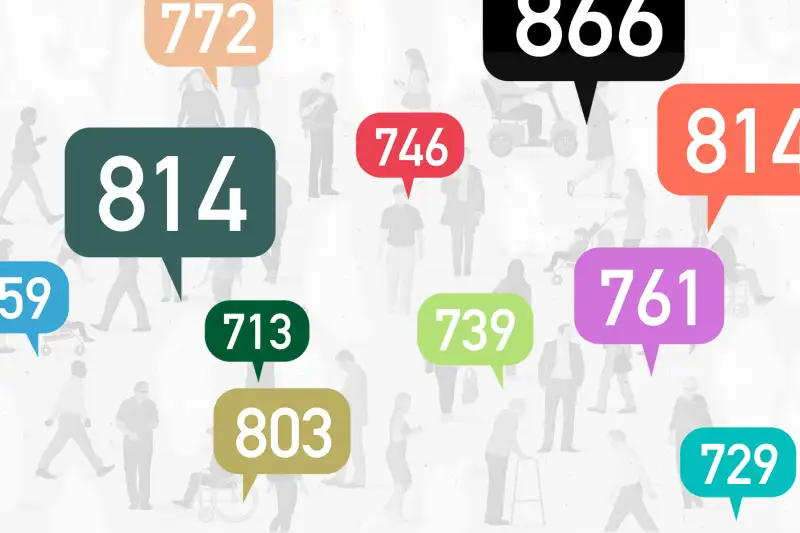The Average Credit Score Just Hit a New High. See How Yours Stacks Up

The typical credit score in the United States hit a new record in 2019, with the average FICO score rising to 703.
That average has increased 14 points in the past decade, according to Experian’s 2019 Consumer Credit Review, released Monday.
Experian’s data show credit scores have been steadily increasing since 2013, driven by changes in consumers’ credit behaviors, such as accruing fewer past-due payments and using a smaller portion of their approved credit.
A credit score is a measure your creditworthiness. Banks regularly use the number to determine whether to approve you for a loan and to calculate what interest rate you’ll have to pay. A higher score could save you thousands of dollars (or more) on those loans. FICO is the most commonly used credit score, but each of the major credit reporting agencies—Equifax, TransUnion, and Experian—have slight variations in how they calculate it. A higher average FICO score in 2019 is an “indication of consumers being more educated on their credit,” Shannon Lois, Experian’s head of analytics, consulting, and operations, said in the report.
The rising scores also reflect today's low rates of unemployment and long-running economic growth. That's because FICO scores tend to be a lagging indicator of the strength of the economy, says John Ulzheimer, an expert on credit who previously worked at FICO and Equifax.
Yet while increasing scores is positive news, an average of 703 isn't very strong, Ulzheimer said via email. What’s more, a rise in the national average isn't particularly important for an individual consumer.
“It’s been my experience that consumers are—rightly—more focused on their (own) scores, not their neighbor’s scores or the overall average,” Ulzheimer says.
FICO scores range from 300 to 850—anything above 800 is considered exceptional. Ulzheimer says the best interest rates on mortgages are typically available for those with a 760 score or higher, while the best interest rates for auto loans are available for scores above 720.
In 2019, the average age of Americans who'd reached a score of 700 was 54-years-old. That's the lowest it has ever been. Millennials, meanwhile, helped boost the national average with a 25-point jump in their average FICO score over the past several years. In 2019, the average score for millennial consumers was 668.
Credit scores tend to correlate with age, in part because 15% of your credit score is calculated by the length of your credit history—something older consumers have simply had more time to build.
Yet there are other reasons why credit scores often get a boost in middle age. At that point, you’ve likely hit your peak earning years, and the ability to make payments on time is tied directly to a better credit score, Ulzheimer says. Older consumers also tend to have a broader mix of debt, and different types of debt affect your score in different ways. For example, revolving debt on credit cards is far more problematic than installment debts such as mortgages.
If you're looking to improve your credit score, here are seven steps to help guide you.
